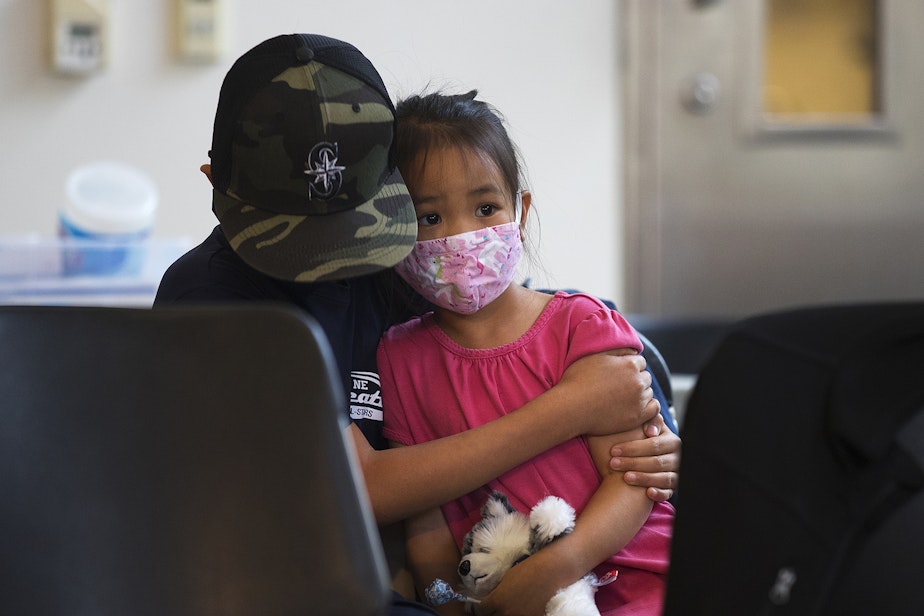'Before was practice.' This epidemiologist says to treat the pandemic like it's 2020

When you're coming up on two years in a pandemic, the last thing anyone wants to hear is that everything up until now has been a trial run. But that's how University of Washington epidemiologist Judith Malmgren sees things with omicron driving infections to record levels.
“Omicron is just so contagious, it’s insane … this is what we were afraid of in 2020,” Malmgren said. “And we are not at the peak. I don’t really like talking about it because there’s no good news here.”
Malmgren said that while vaccines have been effective at preventing severe illness for many, people should get back to wearing masks that mean business, social distancing, and skipping unnecessary air travel.
“Get on an airplane knowing you are going to be in an enclosed space with people who have Covid,” she said. “It is 100% that there will be people on the plane that have Covid. They either know they have Covid and they’re desperate to get home, or they don’t know they have Covid yet.”
Malmgren called last Christmas and New Year's "massive superspreader" events and said she expected that omicron infections would peak sometime between Jan. 14 and Jan. 28.
“We're going to see a million cases a day nationwide," she said. "It's absolutely going to happen."
Malmgren also pointed out how even if omicron infections turn out to be mild for most, a high portion of the workforce needing to isolate at the same time could spell trouble for accessing essential care and services.
“Hospitals are full to overflowing,” Malmgren said. “So if you get sick and it's not like your leg got cut off, but it's still an emergency … you're going to sit in the hallway.”
Additionally, Malmgren predicted that Washington state would soon need to deploy the National Guard to assist hospitals. “I don't see any way around that. I could have told you that in November,” she said.
As for the more long-term outlook, Malmgren said the health care field will need help finding a more permanent solution to an ongoing staffing crisis.
"We need to have the capacity to handle minor things so they don't become major, and to do it all safely," she said.
In the meantime though, Malmgren is encouraging everyone to protect their health — both physical and mental — to the greatest extent they can.
"I think we all have to just really, really practice some kind of self-awareness and self-help to keep ourselves from going completely nuts," she said.
See photos from our episodes on Instagram @seattlenowpod.

